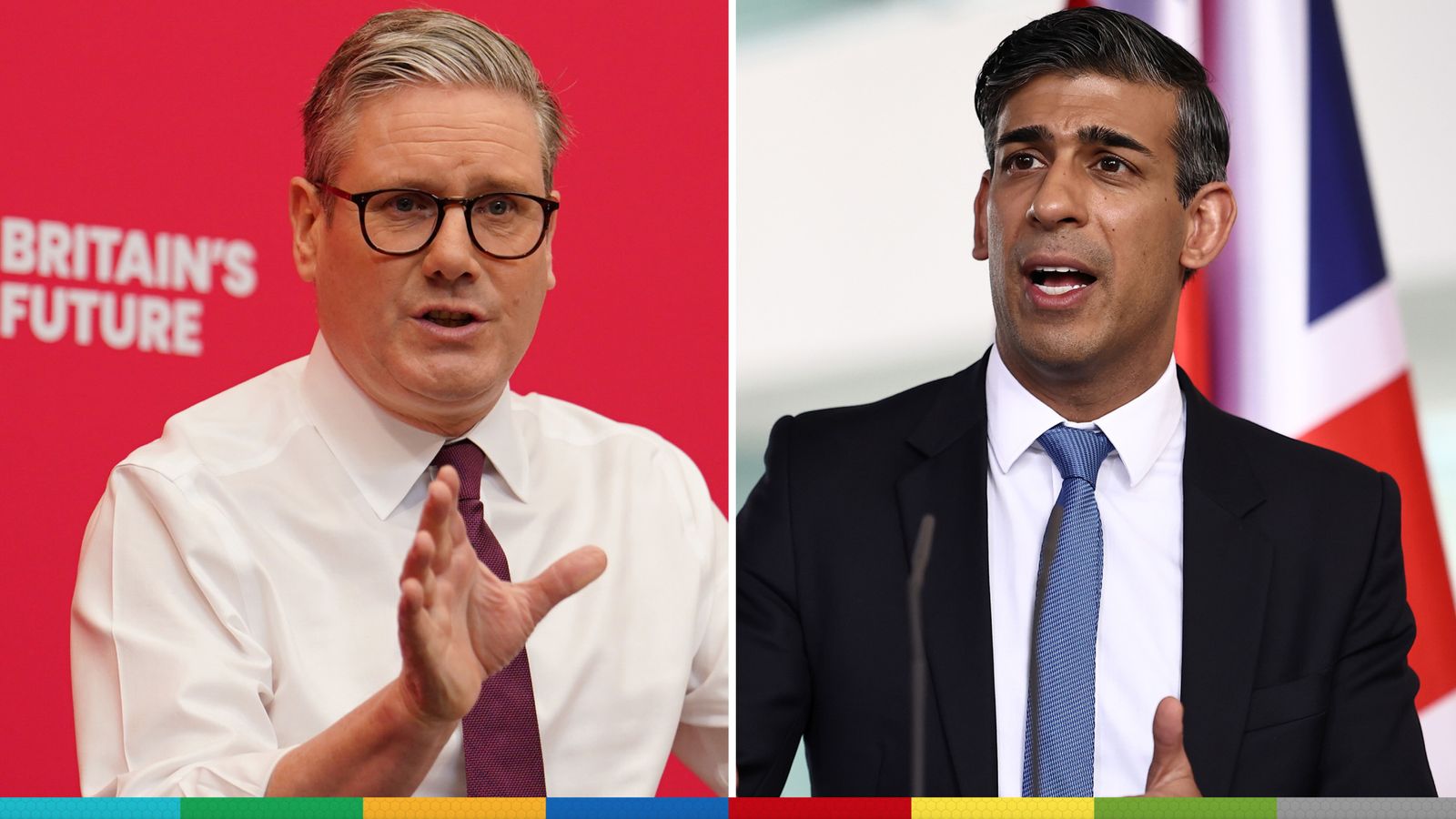Rishi Sunak and Sir Keir Starmer are both facing a historic lack of popularity among ethnically diverse communities, new polling suggests.
While ethnically diverse community voting trends are incredibly complex and almost always hard to predict, some polling can give useful indications that can speak to the mood of the country.
A comprehensive set of data based on polling by Ipsos and shared exclusively with Sky News gives us a general sense of how the leaders of the two main parties are faring at this very specific time.
Politics latest: Asylum seekers detained for removal to Rwanda
Sunak more popular with white voters
Mr Sunak was named the UK’s next leader on the festival of Diwali, serving as a reminder of the milestone in Britain’s evolution as a multicultural and multi-faith society.
He’s the UK’s first prime minister from an ethnically diverse background and the first Hindu prime minister, but in terms of how much ethnically diverse communities have rewarded him for these historic firsts, it’s a somewhat surprising figure.
Over the past year, his approval rating among ethnically diverse communities is -53.
That figure is historic too – it’s one of the worst of any prime minister in nearly 30 years.
Actually, from these figures, he’s much better liked by white voters – who give him a rating of -41.
This is perhaps unsurprising, given that historically the majority of ethnically diverse communities have voted Labour.
Though support for the Conservatives reached a high of 30% in the first half of 2016 and only falling sharply in the aftermath of Brexit and then in the 2017 general election under a different leader.
Sir Keir behind Blair and Brown
For the Labour Party then, the stakes could not be much higher as they bill themselves as the party of equality and progressive politics and ethnically diverse communities have traditionally rewarded them for it.
The party has consistently held large leads with ethnically diverse community voters over the last few decades and under previous Labour leaders, often given net positive satisfaction levels.
The current leader, Sir Keir Starmer, has a more favourable rating than the current prime minister, with an average satisfaction rating over the past year of -32.
But he is also considerably more popular among white voters.
And when you compare these numbers to previous Labour leaders, it is more stark.
Sir Keir’s standing with ethnically diverse community voters currently is the lowest level a Labour leader has recorded among black and south Asian voters since 1996.
Far worse than the very worst ratings recorded by either Tony Blair (at -11 during the Iraq War) or Gordon Brown (at -13).
‘The Gaza Effect’
Now, there are myriad reasons why individuals and different communities have drifted from the central parties and traditional voting patterns, but Ipsos has outlined one specific thread of dissatisfaction with both parties that they call “The Gaza Effect”.
During by-elections and the recent local elections we saw a wave of independent candidates running on this single issue platform, most prominently George Galloway in Rochdale, but this data shows an indication of how deep that sentiment runs.
When you compare the aggregate satisfactions levels across the year for both leaders, you can see how different ratings become for ethnically diverse communities when compared to white voters.
For white voters, there’s next to no effect in satisfaction levels towards the two leaders post 7 October.
When you compare that data to the rating ethnically diverse community voters have given the two leaders, there is a noticeable drop in support.
For Mr Sunak the drop is only around 13 points, but for Sir Keir, it is far more significant with a huge fall of 29 points.
The scale of the impact is almost impossible to predict, and the drop in these figures won’t necessarily translate into votes or even seats – but what is clear is these figures show both parties will need to offer ethnically diverse communities much more to win their vote at the next election.





